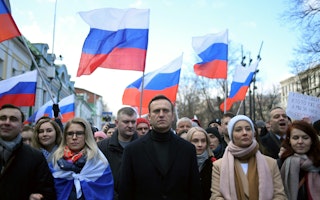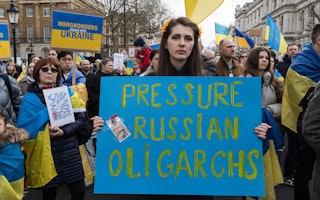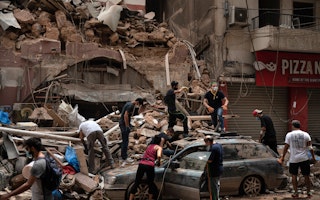The War Against Corruption in Kenya
By Mugambi Kiai
The following article originally appeared in The Star.
On November 2, 2010, Kenyan president Mwai Kibaki reportedly told an infrastructure meeting in Nairobi:
Let us not have people who will seek to swindle the government. Such people shouldn’t be alive because the government uses public money... There is no need to have any mercy on a fellow who is trying to swindle us... A person who plans to misuse public funds must not be allowed to continue working in Government. We must deal with those who want to embezzle public money... we will sack such fellows. Those who want to continue working on ways to steal public money should go home and let the new crop of professionals develop the country.
Fighting words, belligerent rhetoric: but we’ve heard it before. In December 2002, President Kibaki told Kenyans during his inauguration, "Corruption will now cease to be a way of life in Kenya and I call upon all those members of my government and public officers accustomed to corrupt practice to know and clearly understand that there will be no sacred cows under my government."
There are several reasons why the so-called “war” on corruption has begun to elicit considerable optimism. The Kenya Anti-Corruption Commission (KACC) has a new chair in PLO Lumumba. Moreover, some senior public officials have “stepped aside” or been suspended pending corruption investigations, and this is viewed as a genuine step in the right direction. In addition, there is all this fighting political rhetoric from the political leadership.
But reservations remain. While the rhetoric is hot, the actual war on corruption has been cold. It has been widely acknowledged that as scandal after scandal has unfolded, the traditional Kibaki response has been long silences and clear pussyfooting. Take the example of the Anglo Leasing scandal. John Githongo, Michela Wrong’s It’s Our Turn to Eat for instance informs us, kept President Kibaki informed of his findings on his investigations into this scandal. Yet, it took Githongo’s enforced flight and exile, following threats due to his investigations, to elicit any kind of forward-looking response to this scandal from Kenya’s political elite.
And even then the majority of those officials who have stepped aside to allow for corruption investigations are back in public service without ordinary Kenyans having the benefit of assessing and auditing the investigations into their conduct. David Mwiraria and Kiraitu Murungi, for instance, resigned to allow for investigations into any wrongdoing in the Anglo-Leasing scandal. Amos Kimunya was also forced to resign after parliament passed a no-confidence vote in him in July 2008 following accusations that the sale of the Laico Regency to its current owners was irregular. Today, Kiraitu and Kimunya are back in the cabinet while Mwiraria, following his electoral loss in 2007, serves on the board to a parastatal. It may also be recalled that the senior civil servants accused of misdeeds in the case of the expropriation of funds for free primary education and the maize scandal were exonerated and returned to public office through processes that were inaccessible to the public.
So if the rhetoric and the “stepping aside” are not new, what is? In addition, while PLO Lumumba may be the new face in the “war” against corruption, have the systemic challenges that crippled the Aaron Ringera-led KACC been sorted out? Ringera’s default response to the public critique of his tenure was that whereas his office had carried out the requisite investigations, he had been denied the mandate to undertake prosecutions by a court ruling that declared that only the Attorney General (AG) was constitutionally entrusted with that mandate and the AG had neglected or refused to do so.
Under the new constitution, “State powers of prosecution” are now under the ambit of the Director of Public Prosecution (DPP). Unlike previously where the AG was appointed by Presidential fiat, the DPP is nominated and appointed by the President subject to parliamentary approval. Moreover, in undertaking this mandate, the DDP is required under Article 157 (11) to “have regard to the public interest, the interests of the administration of justice and the need to prevent and avoid abuse of the legal process.” It should also be noted that under Article 157 (12) Parliament may now enact legislation “conferring powers of prosecution on authorities other than the Director of Public Prosecutions.” In addition, the DPP, unlike the AG today, cannot take over criminal prosecutions initiated by another person or authority without their consent.
Hence, the prosecutorial framework around corruption has been improved significantly by the new constitution. Yet, we should not be blinded by these improvements to think its all now smooth sailing: the axis behind the perpetration of grand corruption has revolved around senior politicians, big business, and senior civil servants and they have been central to resistance against entrenching accountability around corruption. It can only be expected that they will marshal a spirited fight-back against any attempts to use the improved constitutional framework to fight corruption.
In this regard, public attention would need to focus on any new barriers that will be erected against holding public officers accountable for corruption. The monitoring of KACC investigations and, where necessary, its prosecution of those it finds culpable for corruption needs to be a key civic action plank and a regular public score-card on this will need to be provided. The performance of the office of the DPP in prosecuting corruption will also need to be similarly assessed.
But this kind of assessment and pressure needs also to be visited on the highest offices in the land: those of the President and the Prime Minister. Any administrative executive process to determine the innocence or guilt of senior public servants following accusations of involvement in corruption will need to undergo and pass the test of public evaluation and scrutiny. There have been too many investigations where this has been completely overlooked. It was, hence, particularly edifying to see Parliament demanding from the Office of the President, reports of different investigations that have been kept away from the public. In short, for instance, let the public know the chapter and verse of the investigations into the Embassy properties saga, the Bethuel Kiplagat investigation, the investigation into the sale of Laico Regency, the investigation into Anglo-Leasing so that the public can make up its own mind about where responsibility lies. Let the public also be informed which public debts from irregular deals Kenya is still paying.
In short, the fight against corruption cannot be simply about bellicose rhetoric such as the fighting words we continuously hear. Neither is it simply about the musical chairs of senior officials “stepping aside”. The public must be involved in scrutinizing processes that aim to hold corruption accountable so that the guilty are not allowed back in through the back-door. And those found responsible need to be prosecuted with asset recovery closely aligned to this process. In this respect, the two principals, the KACC, the DPP and the public cannot “step aside” from their responsibility if the “war” against corruption is to be won.
Until June 2018, Mugambi Kiai served as a program officer with the Open Society Initiative for Eastern Africa and the Africa Governance and Monitoring Project (AfriMAP).


